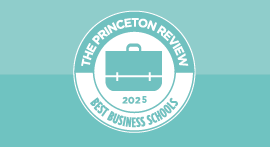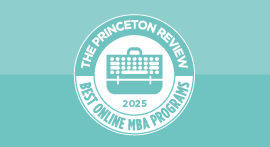Academics
Located just outside of Boston, the MBA program at Babson College’s F.W. Olin Graduate School of Business offers its students their trademarked Entrepreneurial Thought and Action® methodology, making it a top dog in entrepreneurship at business schools around the country. With four different models, students can choose to get their MBA in an accelerated one-year program, a traditional two-year program, through evening classes, or through a “blended learning” program customized for working students who want a mix of online and on-campus courses. Students appreciate Babson’s reputation for “innovation” and “social impact,” (encapsulated by their Lewis Institute for Social Innovation), attention to “digital transformation,” and their philosophy of embracing “ambiguity and uncertainty” in a dynamic, often unpredictable economy and marketplace. Babson “particularly focuses well on the product development life cycle,” one student said, “which is important to understand many aspects of management from marketing and operations to manufacturing and product development.” Faculty is “fabulous” and “diverse” and many “host extracurricular roundtable discussions…on marketing, science, and technology.” “Smaller class size[s],” “practical learning,” and a “cooperative and cohesive environment” ensure that students are given focused opportunities for growth and collaboration and will be able to apply their lessons “in many settings.” One area of improvement some students report is that “the systems, processes, and organizational structure do not always facilitate” the good intentions faculty and staff have when it comes to student support, and so there’s “significant room for improvement in [the] administrative approach.”




